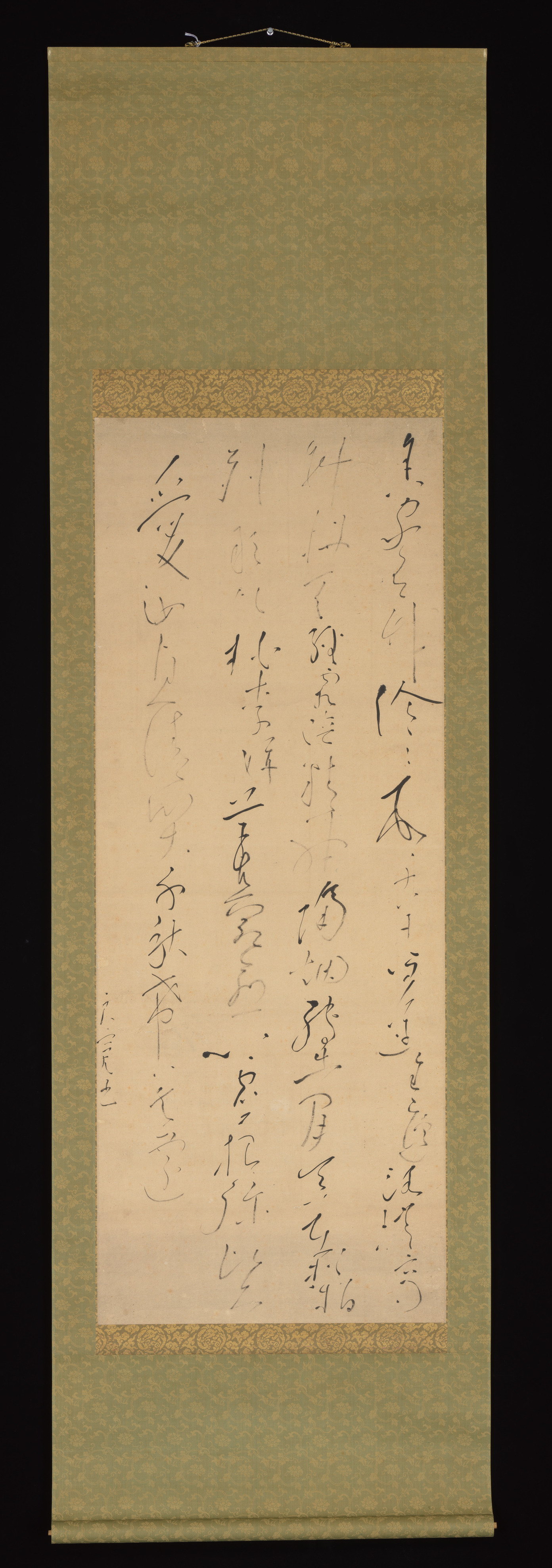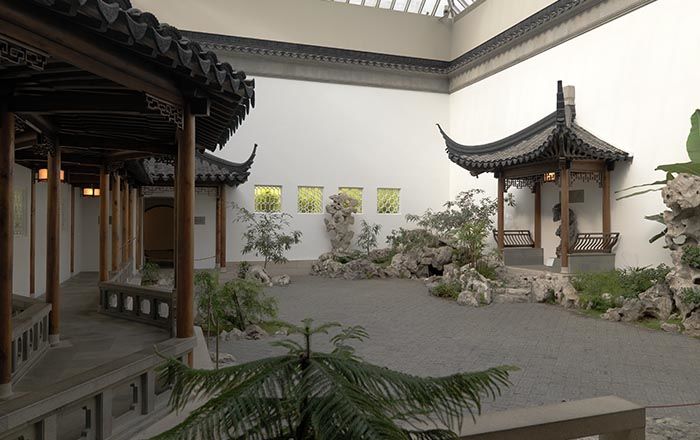Chinese Poem about a Bamboo Grove
Ryōkan Taigu Japanese
Not on view
At first glance the cursive Chinese calligraphy by the monk Ryōkan Taigu seems, even to those trained in the language, to be somewhat sloppy, almost childish in appearance, and illegible in places. But this disarmingly simple, artless, and exuberant style of brush writing—utterly individual and idiosyncratic—earned Ryōkan esteem as one of the great Zen calligraphers of all time.
Though trained as a Sōtō Zen monk, he renounced the rigors of a monastic regimen and opted to live mostly as a recluse, becoming known as an eccentric. He was dedicated to poetry in both Chinese and Japanese, especially the haiku form. Examples of his verse brushed in his own distinctive hand were avidly sought in his own day—and still are today.
Due to rights restrictions, this image cannot be enlarged, viewed at full screen, or downloaded.
This artwork is meant to be viewed from right to left. Scroll left to view more.



